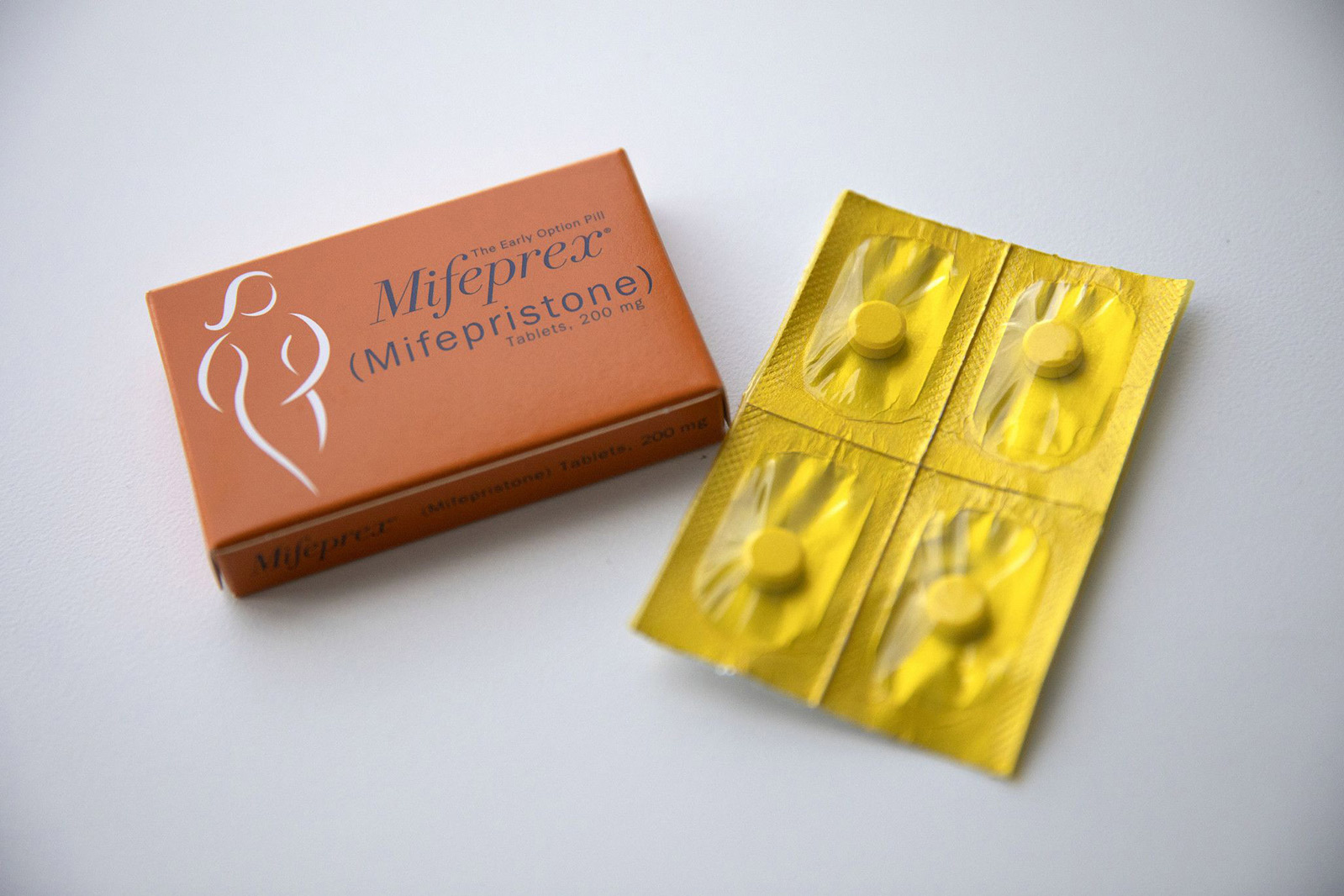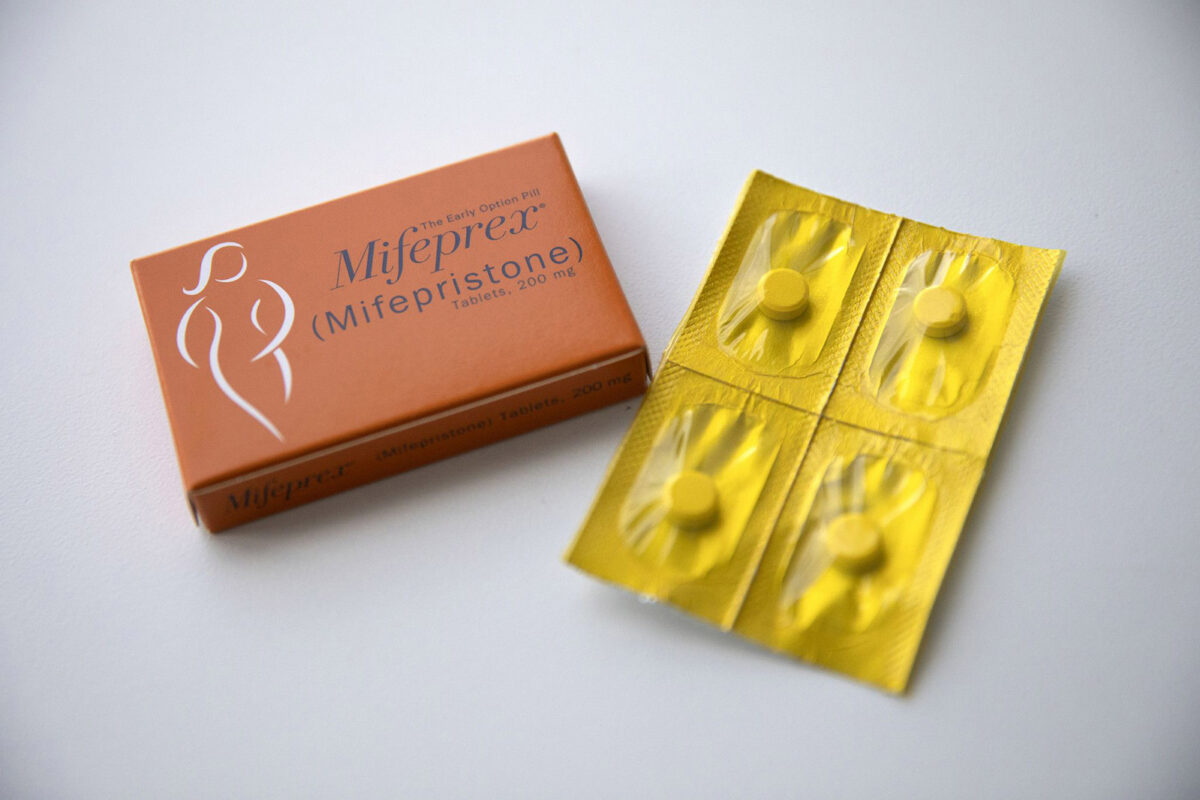This post was originally published on this site

During a four-hour hearing last week that could eliminate nationwide access to a common and widely used abortion pill, federal Judge Matthew Kacsmaryk, of the Northern District of Texas, signaled his conservative Christian beliefs early and often.
Speaking from the bench in a courtroom in Amarillo, Texas, Kacsmaryk repeatedly used language that mimicked the vocabulary of anti-abortion activists. It also reflected the wording of the lawyers seeking to overturn the FDA’s two-decade-old approval of mifepristone, one of the drugs in the two-pill regimen approved for early pregnancy termination.
Each time a lawyer from the Department of Justice, representing the FDA, referred to “medication abortion,” Kacsmaryk returned to the language of conservative Christian activists, using monikers like “chemical abortion” and “mail-in abortion,” phrases at odds with conventional medical terminology.
The stakes in the case, Alliance for Hippocratic Medicine v. U.S. Food and Drug Administration, are high: Abortion rights advocates fear that Kacsmaryk, an appointee of then-President Donald Trump and a former lawyer at the First Liberty Institute, a conservative Christian legal group, could rule within days to force manufacturers to pull mifepristone from the market nationwide. If that happens, clinics and obstetricians and gynecologists across the country will be able to prescribe only misoprostol, the second drug in the two-pill regimen, for miscarriages and early abortion care. Misoprostol is still extremely safe but less effective and comes with more side effects.
The ruling would be unprecedented in the history of approved drugs and could affect the health care of millions of women, even those in states where abortion is still legal.
“One conservative judge is impacting the rights of women in California and New York,” said Greer Donley, an associate professor of law at the University of Pittsburgh Law School and expert on reproductive health law. “The endgame is to stop as many abortions as possible by any means necessary.”
When the conservative majority on the Supreme Court eliminated the federal right to abortion, Justice Brett Kavanaugh, a Catholic, wrote that the court was not outlawing abortion throughout the United States. “On the contrary,” Kavanaugh wrote, “the Court’s decision properly leaves the question of abortion for the people and their elected representatives in the democratic process.”
But in the nine months since the announcement of the decision in Dobbs v. Jackson Women’s Health Organization, Christian legal groups have made their strategy clear: eliminate abortion nationwide by filing lawsuits in federal courts that make scientific claims, unsupported by mainstream medical organizations, to raise doubts about the safety of abortion pills and contraception.
These legal decisions, which conservatives might once have decried as “judicial activism,” are partially necessary because abortion rights continually poll positively, with voters even in solidly conservative states like Kansas and Kentucky refusing to enact bans.
“After Dobbs, there have been more and more efforts to move things away from the popular majority and into the hands of judges like Kacsmaryk,” said Mary Ziegler, a law professor and abortion historian at the University of California-Davis School of Law. “Because voters are not sold on fetal rights and because the only way to a national ban on abortion is likely to come from the conservative courts,” she said.
Ziegler added of anti-abortion campaigners, “They don’t want solutions that work only in Tennessee and Texas.”
The strategy of casting doubt on established and accepted science is not new in conservative circles, nor is it limited to abortion.
For decades, conservative Christian legal groups have introduced scientific uncertainty where there had been none: Claims that abortion causes breast cancer or infertility are unsupported by medical and scientific research but nevertheless made their way into state laws, requiring physicians in certain states to tell patients about risks from abortion that do not exist.
And in a recent opinion that ended birth control access for teens without parental consent in Texas, the same judge as in the mifepristone case — Kacsmaryk — exaggerated the health risks of prescription birth control in his decision, asserting that states have an interest in protecting the health of girls.
“Several popular methods of birth control carry serious side effects,” Kacsmaryk wrote, later quoting from Planned Parenthood educational material that read, “Complications are rare, but they can be serious. In very rare cases, they can lead to death.”
That case, Deanda v. Becerra, was filed by a Christian father who cited religious objections to a federal family planning program. And in the mifepristone case, fundamentalist Christian groups have argued that the drug is unsafe, despite ample research and decades of use testifying to the contrary.
Alliance Defending Freedom, which describes itself as the world’s largest legal organization committed to protecting “God’s design for marriage and family,” is pushing to outlaw abortion pills. Erik Baptist, an attorney for the group, said in a statement following the March 15 hearing that the “the FDA’s approval of chemical abortion drugs over 20 years ago has always stood on shaky legal and moral ground.”
He added, “It’s time for the government to do what it’s legally required to do: protect the health and safety of vulnerable women and girls.”
Conservative legal groups like ADF have been savvy about exploiting small wins in the courts and building on them, such as the 2007 decision Gonzales v. Carhart, which upheld a federal ban on a rarely used method of abortion.
The decision had minimal practical impact, as the procedure in question was rarely performed, but it established an important legal principle: When scientific uncertainty arises in legal disputes — is a medical procedure, device, or medication safe or not? — legislatures get to decide.
“The court said when there is scientific uncertainty the tiebreaker goes to the legislature,” said Ziegler.
But there is little question that mifepristone is safe: More than 5.6 million women have successfully used medication abortion since 2000, according to the FDA. In 2008, the Government Accountability Office investigated the FDA’s approval of mifepristone and concluded the process was consistent with FDA regulations.
In the courtroom, Baptist acknowledged that no court had ever ordered the FDA to remove a drug from the market over the agency’s objections, and legal observers say there remains a huge question whether the court can order the secretary of the Department of Health and Human Services, who oversees the FDA, to do so.
But Laurie Sobel, an associate director for women’s health policy at KFF, who listened to the hearing in a Dallas courtroom, said anti-abortion attorneys argued that the mailing of abortion medications strips states of their ability to protect women and children. (The hearing, which Kacsmaryk did not, initially, publicly announce, was not streamed to the public, and the court has yet to release a transcript.)
But Jessica Ellsworth, an attorney representing Danco Laboratories, a manufacturer of mifepristone, told the court that abortion remained legal in all states because it was allowed for preventing a patient’s death or serious bodily injury. Using mifepristone is the safest method of abortion, she argued, noting the judge’s decision in the case could ban it in every state.
“If Kavanaugh said, ‘We’re going to send it back to the states to be decided by their elected representatives,’ this is the exact opposite,” said Donley.
Kacsmaryk appeared ready to grant a preliminary injunction in favor of anti-abortion groups, asking ADF’s Baptist what kind of remedy he was seeking.
Baptist responded, “The court has an interest in preventing dangerous drugs from entering the marketplace.” He added, “Any relief you grant must be complete. The harm of chemical drugs knows no bound.”
